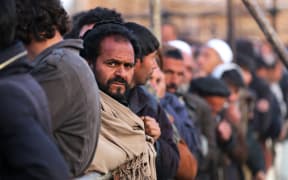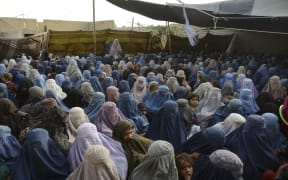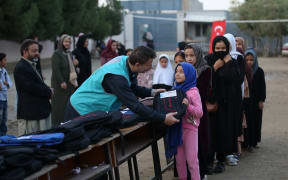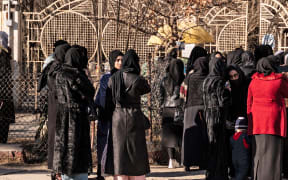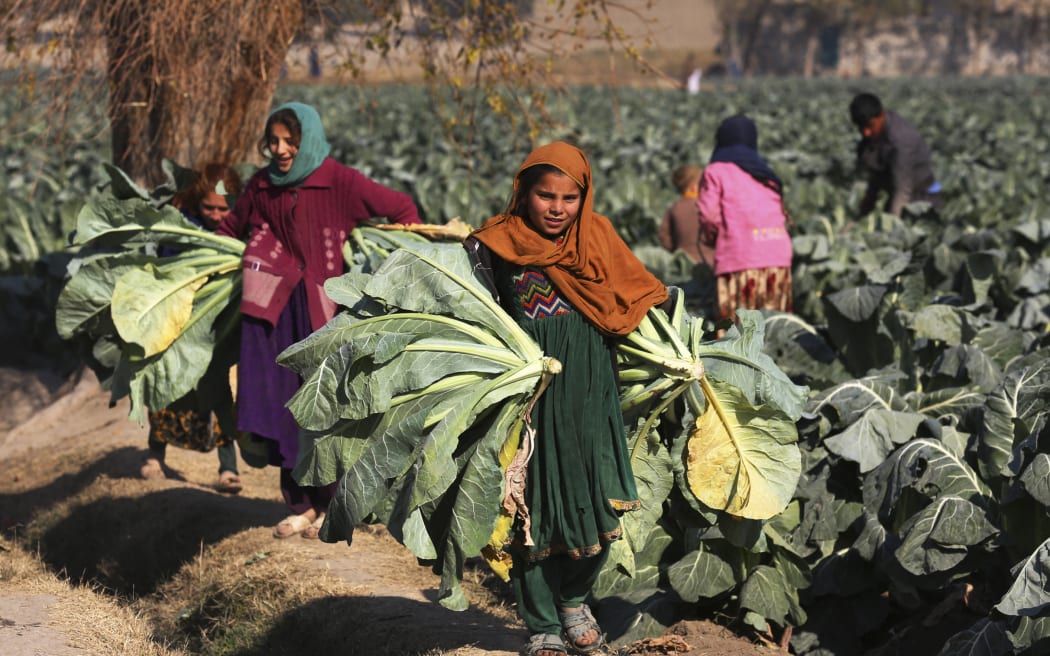
Girls harvest cauliflowers in field on the outskirts of Jalalabad on 4 January, 2023. Photo: AFP
Children could increasingly be pushed back into work as a result of a ban on women aid workers in Afghanistan, Save the Children is warning.
Two weeks ago the Taliban banned women from working for any international or national non-government organisations in Afghanistan.
Save the Children was among the international aid agencies that had since paused their activities in the country.
Hasina, one of Save the Children's child protection workers, said she was deeply concerned that the ban would mean more children were pushed back into child labour.
"The ban on female aid workers means we cannot run our programmes that help children, especially girls, involved in the most dangerous forms of child labour, such as working in brick factories, on building sites, in people's homes and collecting rubbish and begging on the streets."
Hasina said female staff were involved in every aspect of the programme: "From going door-to-door to identify girls involved in child labour, registering the girls and supporting them to return to school or enrolling them in vocational training, teaching the girls technical skills and helping them to set up their own businesses."
Save the Children acting country director for Afghanistan Nora Hassanien said ten percent of households were female-headed.
Which meant male only teams could not access those households.
"We can't have men go and assess the vulnerability of those households. It's not appropriate for a man to go into a woman's home while she's on her own," Hassanien said.
And if the team could not do an assessment they could not identify those women as being eligible for assistance.
Hassanien said that was why it was so important to have women available in all aspects of the program.
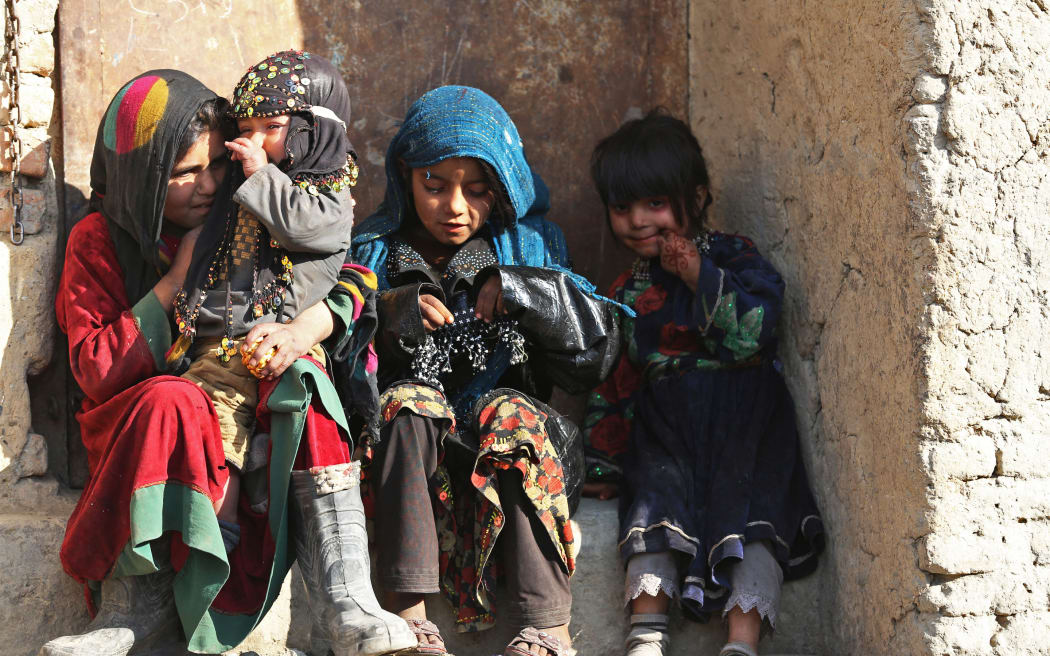
Children sitting in a doorway in Afghanistan's capital city of Kabul, on 28 December, 2022. Photo: AFP
She said the ban came at a time when Afghanistan was facing its "worst economic and food crisis on record".
She feared the future prospects for children in Afghanistan were "bleak" if it was not reversed quickly.
"We're already seeing significant rise in children being forced to engage in harmful forms of labour; working on the street, being trafficked and being sold".
She said if there was an absence of humanitarian assistance things would only get worse.
Save the Children, along with other international NGOs, had called for an immediate reversal of the ban and assurances from the relevant de-facto authorities that its female staff would be able to work safely and without impediment.


